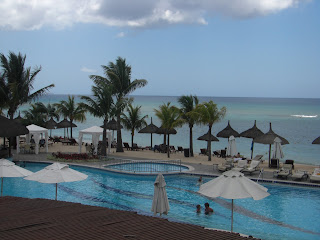Fixed-line operator Telkom South Africa has recorded 9.8 per cent increase in revenue to 29.8 billion South African Rand for the six months ended 30 September, and promised to offer more converged services.
Telkom's fixed-line business reported revenue growth of 2.8 per cent to 16.565 billion rand, while the revenue from data service increased by 12.2 per cent to 4.4 billion rand.
The ability to pull traffic back onto the fixed-line network through mobile service and leverage the next-generation network for full convergence and high-value data services will enhance Telkom's core defend and grow strategy, said Reuben September, Telkom Group CEO.
However, the group’s EBITDA decreased by 2.8 per cent to 10 billion rand and cash generated from operations decreased by 0.5 per cent to 6.4 billion rand while headline earnings per share increased by 0.4 per cent to 745.2c per share.
Telkom achieved a 96 per cent increase in broadband subscriptions and ADSL average installation time improved to 17 days from 20 days, while 60 per cent of all ADSL installations are now done through the self-install option. Telkom is targeting 592 000 ADSL subscribers for the 2009 financial year.
Mobile-based transmission stations have been increased to a total of 589 and optic fiber deployment now covers 3 800km, while a packet exchange has been commissioned in Abuja, Nigeria, for 300 000 subscribers.
Telkom’s intended expansion beyond South Africa is demonstrated by the acquisition of MWeb Africa and 75 per cent of MWeb Namibia, for $63 million.
“The transaction for the largest satellite-based ISP in sub-Saharan Africa is expected to close in the first half of the 2009 calendar year,” said September.
Telkom intends to accelerate the expansion of the network, including the next-generation network, selectively build a mobile network and explore acquisitive opportunities, particularly in the data centre arena, noted September.
“I am excited about Telkom’s repositioning within the market,” he added. “Our strength is our network and we intend to utilize the proceeds to leverage this strength for the benefit of all stakeholders.”
Ends

































